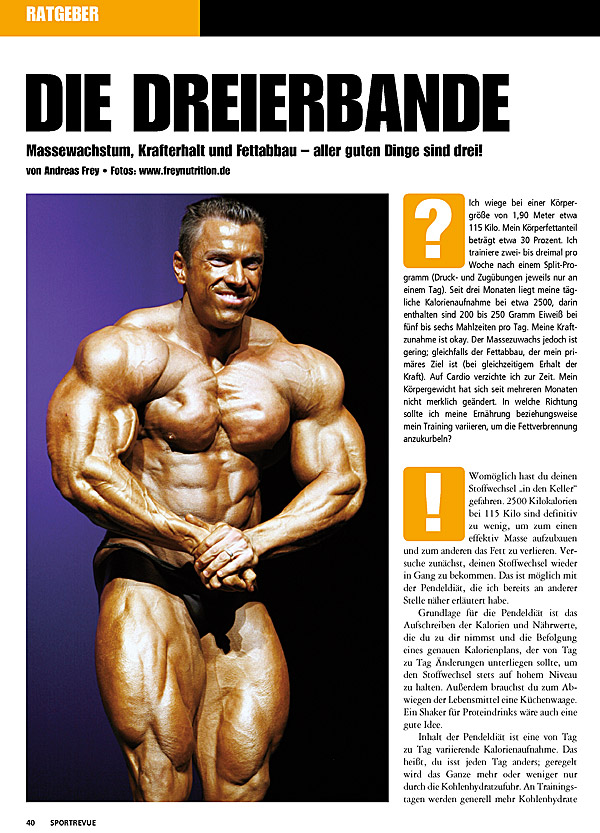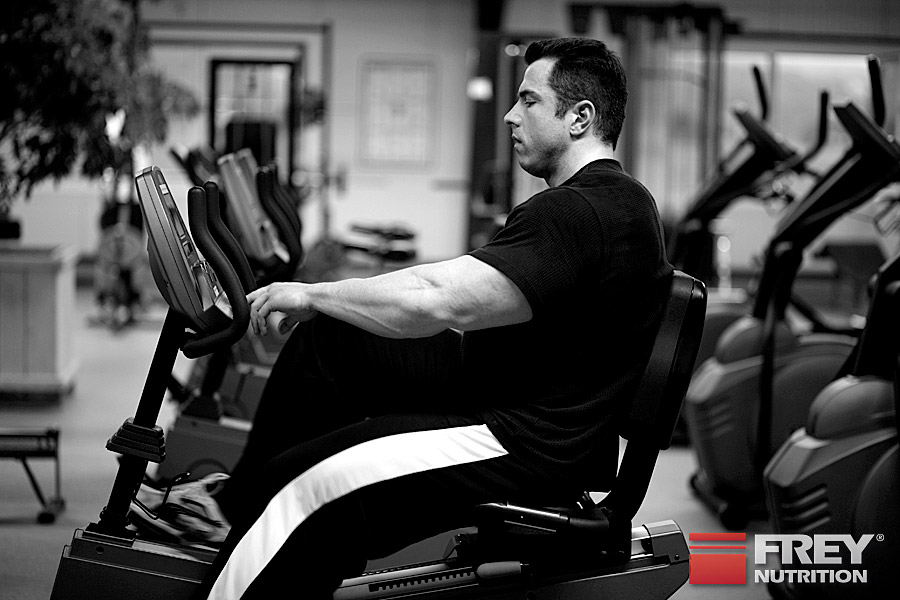GAINING MASS, MAINTAINING STRENGTH AND LOSS OF FAT? ALL GOOD THINGS COME IN THREES!
My strength gain is OK. However, the mass gain is small, as is fat loss, which is my primary goal (while maintaining strength). I'm not doing any cardio at the moment. My body weight hasn't changed noticeably in several months. How should I vary my diet or training to boost fat burning?
ANSWER

The pendulum diet involves a calorie intake that varies from day to day. This means that you eat differently every day; the whole thing is more or less regulated by the carbohydrate intake. On training days, you generally eat more carbohydrates because you need strength for training, and on non-training days, you eat less. One day of the week is a so-called "feeding day" or "loading day" to really boost your metabolism. In summary, I recommend the following values based on your body weight:
- Proteins: 350g
- Carbohydrates: 480 g
- Fat: 75 g
You should not reduce your fat intake under any circumstances, as your body would notice this very quickly and stop burning fat. The organism always strives to maintain bodily functions for as long as possible. Fat is an important source of energy for the body and is therefore extremely important. If fat is drastically reduced, the body switches to low power and no longer burns fat. This means that the diet comes to a standstill. Many people then reduce their fat intake even more. The body registers this and reacts by storing more fat. This leads to a vicious circle and ultimately the much-cited yo-yo effect. This is because immediately after the diet, the organism cannot cope with the fat supplied by a normal mixed diet and stores everything that is supplied to it.
It is important to use healthy and polyunsaturated fats, such as rapeseed oil, safflower oil and linseed oil. You should follow the following commuter program (based on your body weight and with four training days per week):
- Monday: 4500 kcal
- Tuesday: 3000 kcal
- Wednesday: 2500 kcal
- Thursday: 3000 kcal
- Friday: 3000 kcal
- Saturday: 2500 kcal
- Sunday: 2500 kcal
You should also structure your training differently. Instead of separating push and pull exercises, you should combine specific muscles, which promises much greater success, for example:
- Monday: Chest, shoulders, triceps
- Tuesday: legs, calves, stomach
- Wednesday: Back, biceps
Cardio training with a pulse of about 150 beats per minute will help you to increase your metabolism significantly. In the article AEROBIC TRAINING & FAT LOSS I have explained the background to this in detail. If you are interested in the topic, I can highly recommend the article. The high pulse will mean that when you are at home eating, sleeping or watching TV, you will burn more calories than you would without cardio training. And what is better than burning calories - i.e. fat - while resting? I wish you the best of luck with your fat loss plan!











